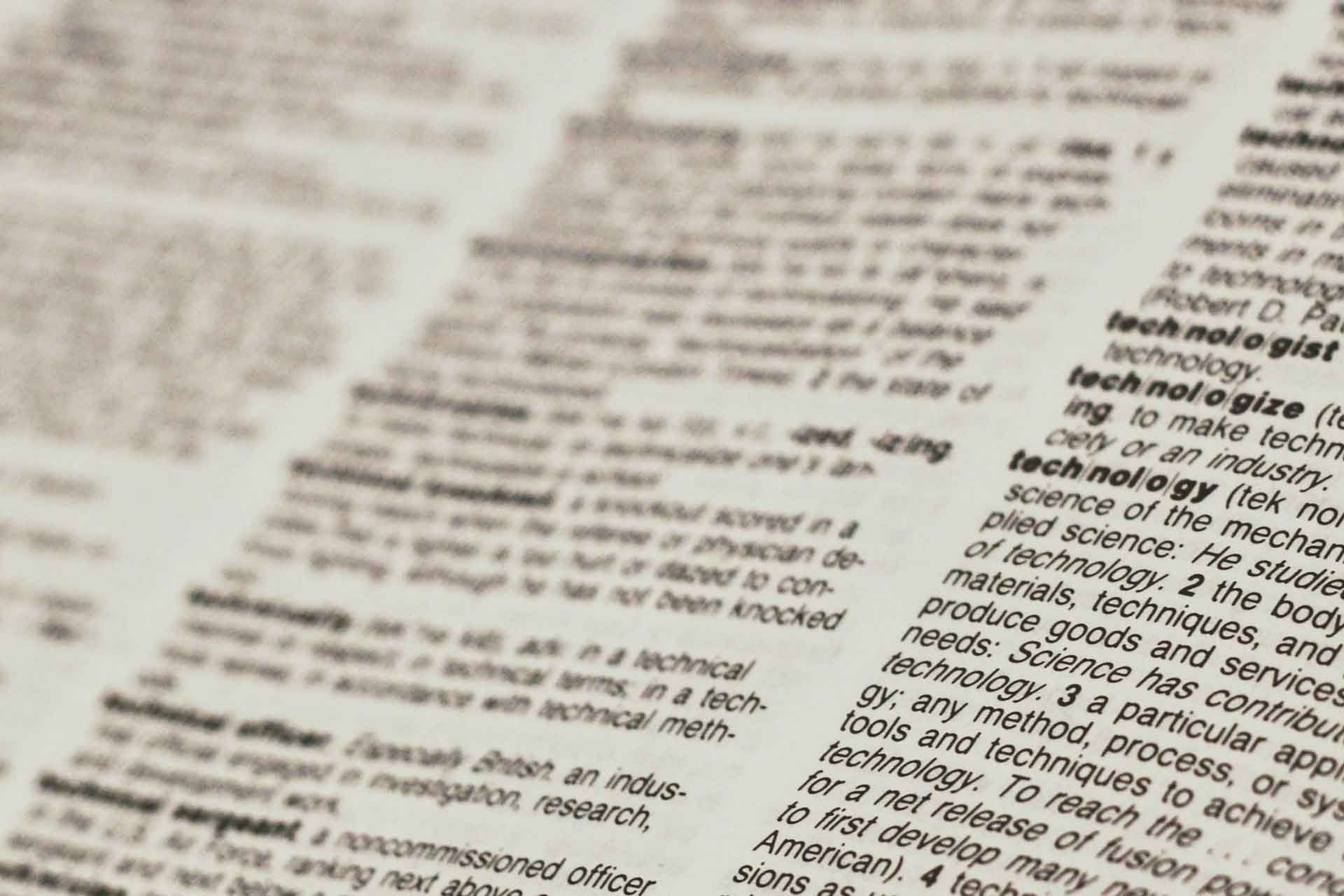What Is Oxford’s 2023 Word Of The Year? (& More Word Of The Year Highlights)
By
1 year ago
These words will take you on a trip down memory lane

From ‘vax’ to ‘climate emergency’, words of the year are picked to represent the mood, themes or preoccupations of the past 12 months. Chosen annually by the Oxford, Cambridge and Collins Dictionaries, they aim to capture the zeitgeist – so it makes sense that this year’s contenders are all about our robot friends (or foes). Cambridge Dictionary has gone for ‘hallucinate’, a verb which gained new meaning this year: the traditional definition is ‘to seem to see, hear, feel, or smell something that does not exist’. However, it now includes ‘when an artificial intelligence, (AI) hallucinates, it produces false information.’ Collins Dictionary simply went for AI. Here we look back at some of the highlights from previous years.
What Is Oxford’s 2023 Word Of The Year? (& More Word Of The Year Highlights)

Unsplash
2023
Oxford: Rizz
Oxford’s recently-announced word of the year is ‘rizz’ – slang for charisma. Oxford states that the word was first recorded in 2022, but it really took off after Spiderman actor Tom Holland referenced it during an interview earlier this year: ‘I have no rizz whatsoever,’ Holland confessed. ‘I have limited rizz.’ Here’s hoping we all find some rizz in 2024.
Cambridge: Hallucinate
While Cambridge’s pick might conjure images of fever dreams and fuzzy stupors, ‘hallucinate’ has in fact taken on an additional AI-related meaning: though AI tools are capable of generating plausible explanations and logical statements, they often do so using incorrect or misleading information – a process now known as hallucination.
Collins: AI
Following on from Cambridge’s 2023 selection, Collins has chosen ‘AI’ as its most notable word this year – winning out against terms including ‘nepo baby’ and ‘deinfluencing’.
2022
Oxford: Goblin mode
In 2022, Oxford changed things up by incorporating a public vote into the process, choosing between three top expressions. The winner was ‘goblin mode’, a term which went viral on Twitter and TikTok post-pandemic, defined as ‘a type of behaviour which is unapologetically self-indulgent, lazy, slovenly, or greedy, typically in a way that rejects social norms or expectations.’
Cambridge: Homer
This was a reference to the informal American English word for a home run in baseball, which made the cut because of Wordle. It was searched for nearly 75,000 times on the Cambridge Dictionary website during May 2022 after featuring as the game’s word of the day.
Collins: Permacrisis
Let’s be honest, 2022 wasn’t the best year, with the effects of Covid, Brexit, climate change and wars creating a general sense of impending doom. That’s why Collins picked permacrisis for its word of the year, defined as ‘an extended period of instability and insecurity’.
2021
Oxford: Vax
2021 was the year we were all getting jabbed in an attempt to return to normal life following Covid, hence Oxford’s pick of ‘vax’ (meaning a vaccine or vaccination).
Cambridge: Perseverance
Cambridge chose the term ‘Perseverance’ in 2021, in celebration of NASA’s Perseverance Rover finally landing on the surface of Mars after traveling nearly 470 million kilometres. The world also served as a comforting reminder that we really can persevere and find our feet – especially after continued challenges post-pandemic.
Collins: NFT
Collins’ selection was NFT, or ‘non-fungible token’, which its dictionary defined as ‘a unique digital certificate, registered in a blockchain, that is used to record ownership of an asset such as an artwork or a collectible.’ While we were all certainly preoccupied with the Covid vaccine in 2021, cryptocurrency was also receiving huge amounts of attention, ultimately transforming the digital art market.
2020
Oxford: various
After the tumultuous events of 2020, Oxford announced for the first time that it would not choose a single word of the year. Instead, it released a report summing up the ‘words of an unprecedented year’, citing an array of terms including ‘coronavirus’, ‘lockdown’ and ‘Black Lives Matter’.
Cambridge: Quarantine
It’s no surprise that our language changed dramatically in 2020 after the coronavirus pandemic began, and Cambridge selected a particularly pertinent term: quarantine.
Collins: Lockdown
Collins also opted for a pandemic-related term – and one that is now perhaps the presiding association with a rather dystopian year.
Featured image: Joshua Hoehne, Unsplash






